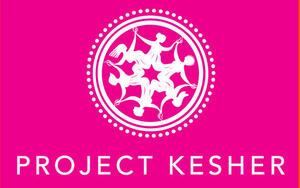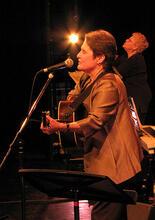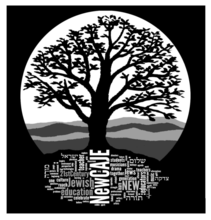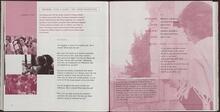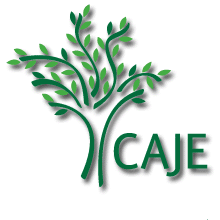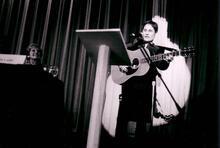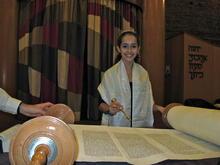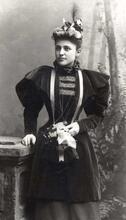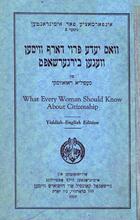Project Kesher
Project Kesher is a feminist Jewish organization empowering women in Belarus, Russia, Ukraine, and the Russian-speaking community in Israel to build a society in which inclusive Jewish life can flourish, and where women are the instruments of peaceful change. It trains women and creates networks that can develop programming prioritized at the grassroots level. Project Kesher provides a model for building leadership within a network of activist volunteers. Members study Jewish texts and then turn the teachings into action in their own communities. They celebrate Global Women’s Seders, partner with Jewish and non-Jewish organizations, and build an infrastructure for civic engagement.
Origins
Project Kesher is a feminist Jewish organization empowering women in Belarus, Russia, Ukraine, and the Russian-speaking community in Israel to build a society in which inclusive Jewish life can flourish and where women are the instruments of peaceful change. It was founded in 1989 by Sallie E. Gratch of Evanston, Illinois.
Kesher means “connection” in Hebrew. Project Kesher invests in leadership training and the creation of a network that can quickly pilot Jewish programming prioritized by women at the grassroots level and replicate these programs through the use of technology, local support, volunteer engagement, partnerships, and strategic advocacy. It is a volunteer-driven organization; leaders/activists devote nearly 200,000 hours per year to creating and leading Jewish communal programming and advocating for social justice grounded in the Jewish commitment to tikkun olam, or repairing the world.
In 1994, Project Kesher brought together more than 100 from the West and 200 from the Former Soviet Union in Kyiv, Ukraine, at the International Conference of Jewish Women. Within a year, ignited by the connections made at the conference, women’s groups began to form in Russia, Ukraine, Belarus, and Moldova. While these groups began as support groups for Jewish women who wanted to transform their own lives, women in Project Kesher’s growing network soon realized that they wanted a meaningful connection to Judaism; they, and then their groups, began to explore their Jewish heritage, which had been all but destroyed by seventy years of Communist rule. Until then, their Jewish identity had been primarily manifested by the word “Jew” stamped on their passports. Since the conference, these Project Kesher women have gone on to build pluralist Jewish communities and to transform their larger communities in the light of Jewish values and the principles of participatory democracy.
Leadership and Partnerships
Project Kesher provides a model for building leadership within a network of activist volunteers. Basic to that model is training in transparent leadership and inclusive, democratic decision-making. Leaders learn how to identify and mentor their own successors as they evolve toward positions of greater vision. They are expected to bring in resources and allies and to extend power horizontally. Programs evolve organically, out of the expressed needs of the women.
Believing that working collaboratively is the most effective way to use resources, Project Kesher partners with other organizations, making available its infrastructure of more than 4000 women, 165 women’s groups, and 90 interfaith coalitions. Project Kesher has also worked with educators from the Institute for Jewish Studies, Hebrew University, Ma’yan, Hebrew Union College, Bar Ilan University, Reconstructing Judaism, the Jewish Theological Seminary, and the World Union for Progressive Judaism to engage hundreds of women in the high-level study of Jewish texts and facilitation of Jewish celebrations. More than 1000 women trained by Project Kesher in Jewish communal leadership have gone on to staff organizations such as the American Jewish Joint Distribution Committee, the Jewish Agency, Active Jewish Teens, Hillel, and Moishe House.
Turning Teaching into Action
Through its Torah Return project, Project Kesher has placed 36 Torahs in communities where women have access to them. Project Kesher women study text, and then ask themselves how they can turn the teachings into action in their own communities. They have been inspired to create nationwide programs against domestic violence and human trafficking. Forming coalitions with women of other nationalities in their towns, they spearhead multinational initiatives for tolerance. They cannot imagine learning without deeds, so through them, Torah is transforming civil society.
From Jewish text-based leadership training to interpersonal relationship building, Project Kesher sparks Jewish leadership through mother/daughter retreats. Mothers and daughters study, celebrate, and develop leadership skills together. They return to their communities and support Jewish programming, start youth groups, and become leaders of community activism. Both mothers and daughters are welcomed into the Project Kesher leadership network with ongoing mentoring and programmatic support. Approximately 75 mother-daughter pairs each year participate in this program. Many of the daughters become second- and third-generation Project Kesher activists. Several graduates have been hired by the organization.
Since 1995, Project Kesher has been celebrating Global Women’s Seders. In the early years, women from opposite sides of the world connected by telephone, often singing together. By 2004, Project Kesher’s Women’s Groups raised their own funds to create and distribute a Russian-language The "guide" to the Passover seder containing the Biblical and Talmudic texts read at the seder, as well as its traditional regimen of ritual performances.Haggadah modeled after Ma’yan’s The Journey Continues. In what was described as “two thousand women sitting at one virtual table,” 118 women’s groups across eight time zones gathered at seders to study, discuss ,and celebrate together. As has become typical of Project Kesher’s empowered groups, the women spontaneously resolved to use their own freedom to ensure the freedom of others, each group committing to specific acts to improve the world in the coming year. In 2021, in honor of Debbie Friedman and the Ma’yan Seders, Project Kesher created a global, feminist music video of “Miriam’s Song” with women from the project Kesher network.
Women’s economic empowerment is a core goal of the organization. Project Kesher, in partnership with World ORT, has established thirteen Mara Schwartz ORT KesherNet vocational computer centers that have provided training to thousands of women. Eighty percent of graduates have improved their economic status.
Project Kesher reaches out to women of many religious and ethnic backgrounds, building activist coalitions. For example, Project Kesher leaders have involved their non-Jewish neighbors in local campaigns to eradicate domestic violence and trafficking in women and to promote tolerance. Project Kesher’s programs promoting women’s health and safety and women’s economic empowerment are made available to all women.
In 2018, Project Kesher Ukraine received a $100,000 CAD grant from Grand Challenges Canada, funded by the Government of Canada. PKU, in partnership with Hromadske (Ukrainian Public) Radio, launched a groundbreaking series on sexuality and reproductive and maternal health that highlighted women’s stories and women experts. Through this programming, women across Ukraine were exposed to factual reproductive health information without judgment or censorship, and PKU created an online community in which women’s voices are heard, validated, and amplified. In 2020, PKU’s show about the impact of COVID-19 on women was one of the top twenty shows on Ukrainian public radio.
Project Kesher’s long-range goal is to inspire and train a new and independently sustainable feminist force for social change. Through grassroots organizing and training, Project Kesher builds an infrastructure for civic engagement, a network of activists who are increasingly capable of creating and funding their own programming to build a humane civil society informed by Jewish values.

